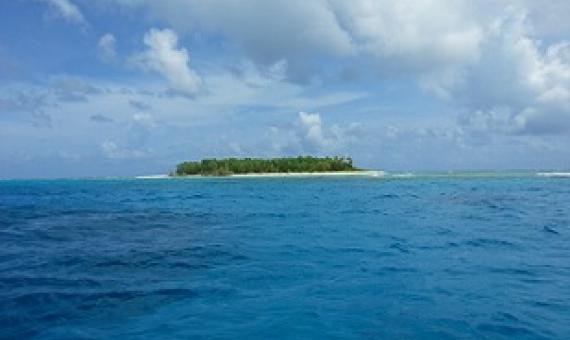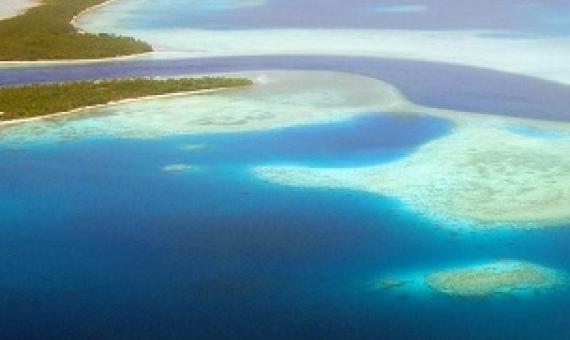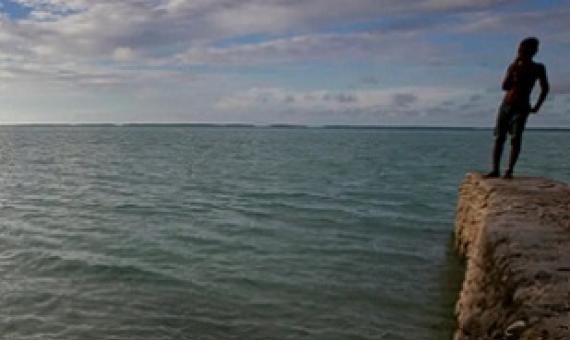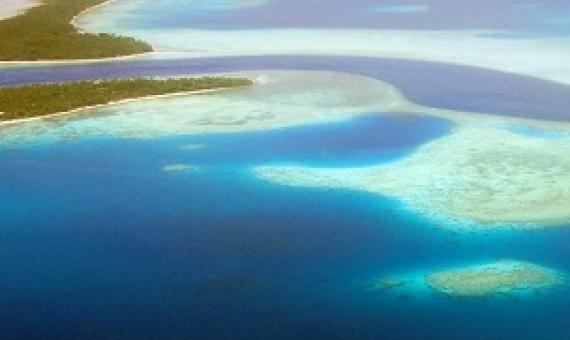There is nothing like certainty in uncertain times. Every September, the northern summer folds into autumn, the southern winter blooms into spring. The leaves fall, the buds blossom, and all is well with the world. Except it is not.
The small island nation of Tuvalu has appealed to members of the Pacific Islands Forum – not including its metropolitan members Australia and New Zealand – to treat with urgency the delineation of their maritime boundaries – taking into consideration the impact of sea-level rise and climate chang
Measuring Temperature in Coral Reef Environments: Experience, Lessons, and Results from Palau
Sea surface temperature, determined remotely by satellite (SSST), measures only the thin “skin” of the ocean but is widely used to quantify the thermal regimes on coral reefs across the globe. In situ measurements of temperature complements global satellite sea surface temperature with more accurate measurements at specific locations/depths on reefs and more detailed data. In 1999, an in situ temperature-monitoring network was started in the Republic of Palau after the 1998 coral bleaching event.
The world’s oceans continue to absorb fossil fuel emissions and heat from the atmosphere, causing them to become warmer and more acidic.
As the world focuses on the coronavirus pandemic, many experts are warning of a far more dangerous threat - climate change.
Humans are dismantling and disrupting natural ecosystems around the globe and changing Earth’s climate. Over the past 50 years, actions like farming, logging, hunting, development and global commerce have caused record losses of species on land and at sea.
The idea of moving an entire population en masse is just one of several radical measures under consideration by the island populations most threatened by rising seas. The world’s only atoll nations—in the Pacific, Kiribati, Tuvalu, and the Marshall Islands; in the Indian Ocean, the Maldives—
Lord Goldsmith said the UK has a lot in common with the Pacific with shared views on climate, biodiversity and the ocean...The UK has a number of initiatives that will continue to address the climate/ocean nexus following the virtual visit.
Sinking Islands, Drowned Logic; Climate Change and Community-Based Adaptation Discourses in Solomon Islands
The saltwater people of Solomon Islands are often portrayed to be at the frontline of climate change. In media, policy, and development discourses, the erosion and abandonment of the small, man-made islands along the coast of Malaita is attributed to climate change induced sea-level rise. This paper investigates this sinking islands narrative, and argues that a narrow focus on the projected impacts of climate change distracts attention and resources from more pressing environmental and development problems that are threatening rural livelihoods.
Delegations from Pacific Islands actively participated in the first two days of technical discussions, showing their concerns about the challenges and impacts of the COVID-19 pandemic and other pressing issues...FAO also intends to support SIDS, LDCs and LLDCs countries under the recently launche

!['We made the ocean our home': The islands fighting climate change. Credit - Jawahir al-Naimi/Al Jazeera]](/sites/default/files/styles/news_teaser/public/Islands_CC.jpg?itok=kpSYUIzR)












